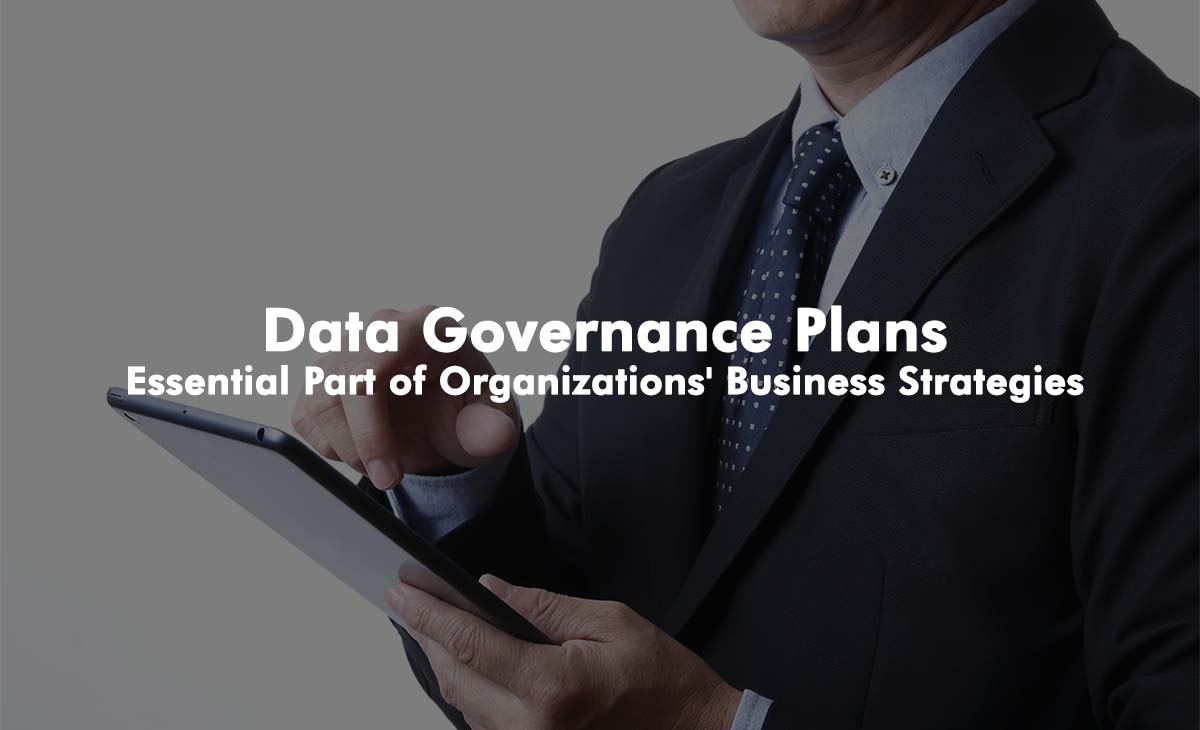
Data Governance Plans: Essential Part of Organizations’ Business Strategies
“Data Governance plans are not only about governing the organization’s data but a pivotal way to an organization’s entire structure to overall efficient business performance.”
Data Governance and its significance have increased since the COVID-19 pandemic took place.
The business processes transformed adapting to digital tools; hence the role of data governance and data governance has become pivotal.
Data governance consists of policies and processes required for effective enterprise data management.
Data governance is, and data governance practices are crucial to an organization’s overall strategy for data management.
It is a crucial element for a complete DataOps practice that enables our data and its usage.
Data governance lays a foundation for business-ready data by adhering to a defined set of rules and processes that accelerates analytics and digital growth initiatives.
Enhanced data governance practices improve the stakeholder’s engagement and enable the organizations’ upper management to make strategic decisions by deriving the insights out of it.
Organizations undertake data governance by implying the appropriate big data environments for data enterprise practices such as data storage and data access, such as data leakages and data thefts.
A well-defined data architecture implied across the business functions makes the processes even more accessible.
Data Governance – The Essential Element:
Data Governance forms the fundamental element of an organizational structure.
The data governance practices play a critical role when it comes to the organization’s data management and structure.
Integrated data governance catalog helps organizations curate, analyze, prepare; and share data to support the AI initiatives that help improvise data structure and attain data governance practices.
Organizations deal with a large chunk of data in their day-to-day operations. Be it devising a business strategy for the organization or analyzing the data for data-driven decisions; the firms take massive data.
Without a quality check run, data gets susceptible to exposure which results in data leakage-related scenarios.
According to a recent survey, Data processing and clean-up accounts for more than 50% of an analytics team’s time.
Organizations are up for investing massively in digital tools but putting data governance practices upfront without considering other digital devices is like making the organizations prone to failure.
Emerging technologies like Big Data lie in the realm of a provocative approach from the business leaders, which consider the amount of data to be handled and take care of the technicalities involved.
Furthermore, the costs incurred in setting up the data centers and the data experts result in business leaders going susceptible to the investments.
According to a recent global data transformation survey, 30% of total enterprise time spent on non-value-added tasks is due to a lack of data availability and poor quality data.
Data Governance Plans – Essential Part of Organizations’ Business Strategies:
Data Governance and Data management practices are an organization’s job and a collective effort that reaps results.
Proper prioritization of the data governance practices coupled with consistent efforts paves smooth functioning of the data governance practices.
The below tools help in enabling secured data governance practices that create value.
Aligning with the C-level executives:
Data governance practices need a plethora of scrutinization, approvals, and analysis to achieve a value-based data ecosystem.
Involving the C-suite executives and other stakeholders by understanding the critical needs and solutions to achieve desired business goals through data.
Effective communication amongst the executives with proper value-based strategies helps create tangible ways to track progress and value creation.
Proper Integration:
Lack of proper integration fails in the entire data governance ecosystem.
Linking governance to transformation themes simplifies senior leadership and the practices needed for the business architecture.
Data governance initiatives shift data responsibility and governance toward product teams, thereby integrating it at the point of production and consumption.
Hence, it becomes imperative for IT leaders to consider the significance of data governance practices.
Prioritizing Data above other tools:
Which element to prioritize and which not create a million-dollar question in front of the C-suite executives.
Many organizations take a holistic approach towards data management and data governance practices, while most do not.
Prioritizing data based on transformational efforts, regulatory requirements, and other inputs helps create a road map for domain deployment results in effective data governance practices.
Level of Governance:
Governance varies magnanimously when it comes to the implementation part. Just having data governance policies in place does not guarantee an effective data governance ecosystem.
Data governance programs vary massively across industries.
Hence, a needs-based approach that implies sophisticated governance models results in a robust data governance business practice.
Customized Data Governance Models:
These days, business practices are continuously evolving, and hence having a comprehensive data governance model results in achieving an effective data governance model.
Having customized data governance models and integrating governance models with the specific business needs prioritizes the used cases and domains, resulting in embedding the customized data governance plans accordingly.
Conclusion:
Data governance practices become imperative while dealing with a large chunk of data.
Having massive amounts of data is common these days due to the rise in data-driven business practices due to digitization.
Stakeholder engagement and implementation of data-driven practices with a focused approach lead to achieving a well-defined data governance model.





